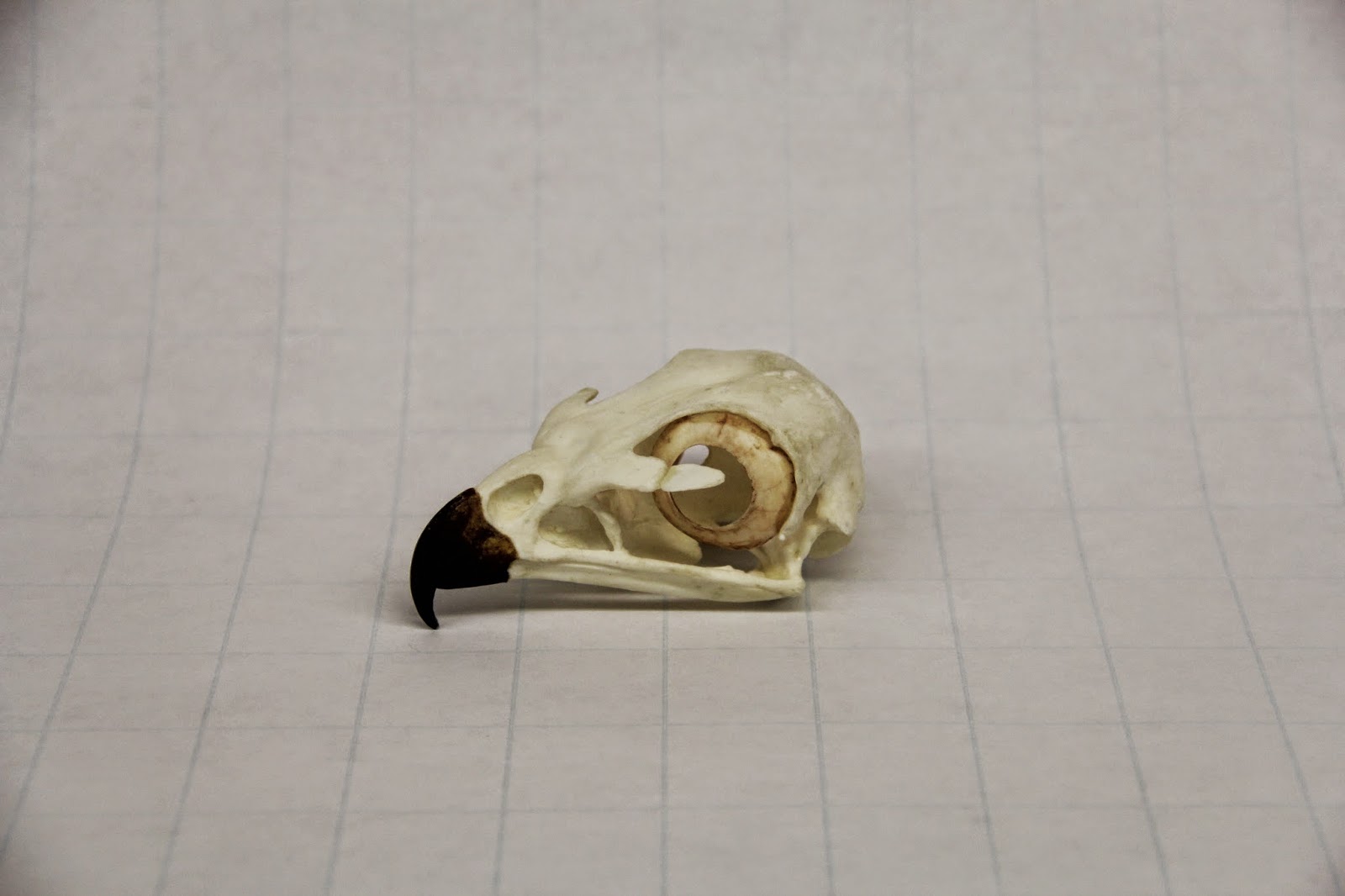I like using the raptor skulls to explain the concept of a niche because the students can see the obvious similarities between the species - large hooked beak, large forward facing eyes, and presence a prominet supraorbital ridge (brow bone) in most species. The students can also easily notice the differences between species, especially size. This size difference makes it easy to explain that each raptor species occupies a specific role or niche in the environment.
Here are the nine replica raptor skulls that I use.
The skulls in this photo include: (front row) American Kestrel, Peregrine Falcon, Osprey; (middle row) Red-tailed Hawk, Golden Eagle, Bald Eagle; (back row) Barn Owl, Barred Owl, Great Horned Owl.
It is easy to see the similarities among these birds. It is also easy to see the difference in size among these species - the grid-lines on the paper background are at one inch intervals.
While these birds all exhibit similar characteristics, the skulls in the above photo represents three different orders and five different families. The three different orders evolved separately toward a common form and function - this is known as convergent evolution. Within each order the birds have evolved to fill different niches; they vary in size, shape, and in the species of prey that they prefer. During this process they have become separate species - this process is known as divergent evolution.
Right now, I don't want to discuss the specific ecological niche of each species, but merely focus on the size difference between the species. This size difference clearly indicates that each species fills a different place in the environment.
 |
| American Kestrel and Peregrine Falcon |
The first two species are both in the Order Falconiformes and the Family Falconidae - the American Kestral (Falco sparverius) and Peregrine Falcon (Falco peregrinus).
 |
| Osprey |
The third species is in the Order Accipiteriformes and the Family Pandionidae - the Osprey (Pandion haliaetus). The Osprey is the only species in its Family.
 |
| Red-tailed Hawk |
 |
| Golden Eagle and Bald Eagle |
The three species in the middle row are all in the Order Accipiteriformes and the Family Accipitridae - the Red-tailed Hawk (Buteo jamaicensis), Golden Eagle (Aquila chrysaetos), and Bald Eagle (Haliaeetus leucocephalus).
 |
| Barn Owl |
 |
| Barred Owl and Great Horned Owl |
The three owls are all in the Order Strigiformes, but represent two different families. The Barn Owl (Tyto alba) is in the Family Tytonidae. The Barred Owl (Strix varia) and Great Horned Owl (Bubo virginianus) are both in the Family Strigidae.

No comments:
Post a Comment